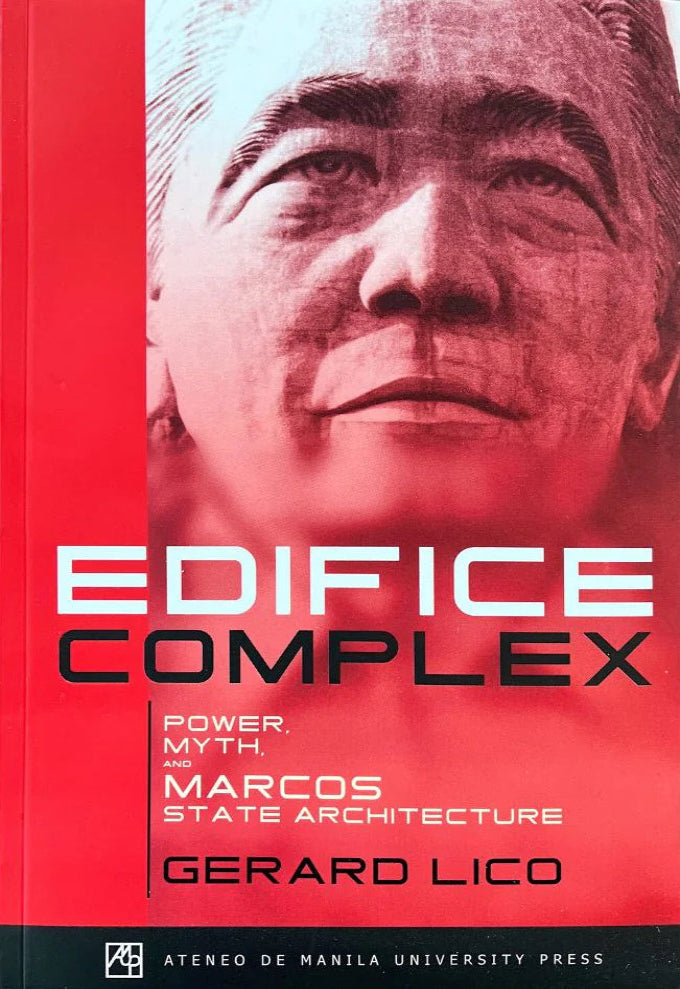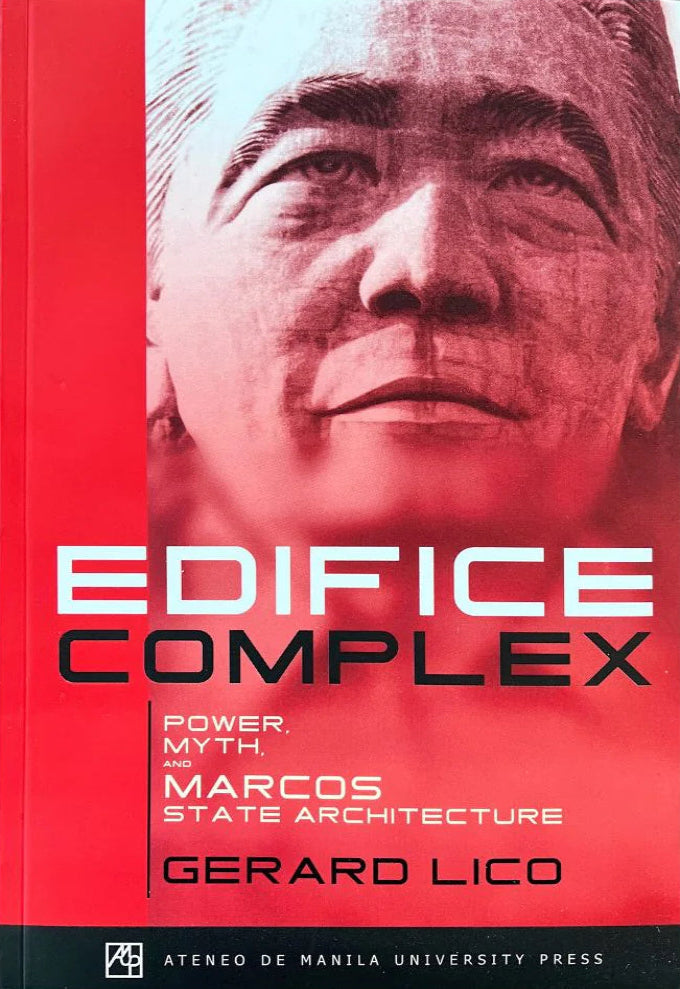Edifice Complex: Power, Myth, and Marcos State Architecture
Edifice Complex: Power, Myth, and Marcos State Architecture
Gerard Lico
Couldn't load pickup availability
Share
Gerard Lico's contribution to Philippine architectural history and criticism covers the late twentieth-century phenomenon of a distinctive, but slightly demented, architectural aesthetic wielded by a "conjugal dictatorship" to legitimize its regime and perpetuate its power. It is this relationship between power and architecture that provides the framework and context for this book.
Lico provides straightforward historical narrative and architectural criticism of the buildings within the prime site of Marcosian architecture that is the CCP Complex, but he situates these within the terrain of tyranny that rereouted foreign aid funds and co-opted the architectural flair of the likes of Locsin, Mañosa, and Hong.
The CCP Complex, Lico states, was architecture as propaganda, a "noncoercive mode of power imposition in stone, concrete, and glass." Lico points out that the modernist, almost inhuman geometries and scale of the complex had a human and social cost. It was a price those in power then were willing to pay.
Lico's is a departure from traditional forms of architectural inquiry. Most previous works have been limited to stylistic influences or confined to Spanish-era architecture. Few writers have looked at the larger political and theoretical context of buildings. For those still accustomed to pre-postmodern modes of architectural thought, the theoretical underpinnings may be a tad difficult. The effort, though, is necessary to reframe our understanding of the process and product of the architecture of that phase of our history.
— Paulo G. Alcazaren
Published in 2003 by Ateneo De Manila University Press
179 pages / Paperback


